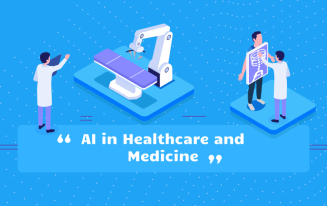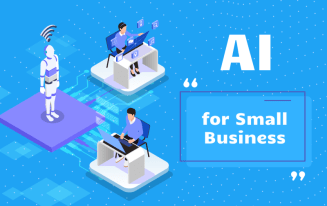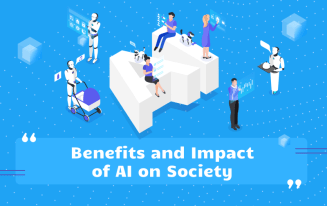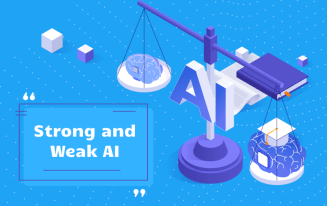How is AI Used in Healthcare
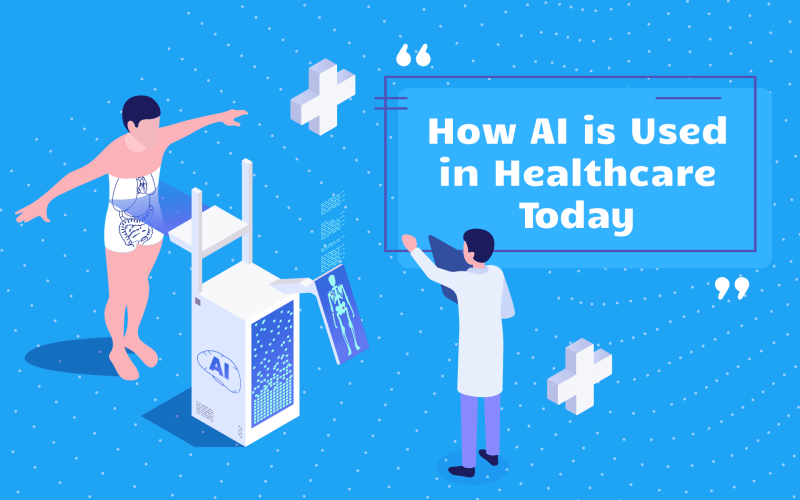
AI has begun to play an ever-increasing role in healthcare because it reduces the risk of human error and serves as a good tool for medical professionals. You see it used in a variety of contexts that include reading medical images, AI assisted surgeries, workflow automation and administrative tasks, and virtual nursing assistants. In 2021, AI in healthcare was worth $11 billion, but most experts believe that it will reach a total value of $187 billion by 2030.

Employ the full range of AI advantages with AImReply and express your thoughts faultlessly in every email.
Table of Content
Let’s take a look at how AI is used in healthcare today. This wave of technology is making a huge impact in the world of healthcare by streamlining diagnoses, creating timely interventions, and improving the overall outcome in healthcare.
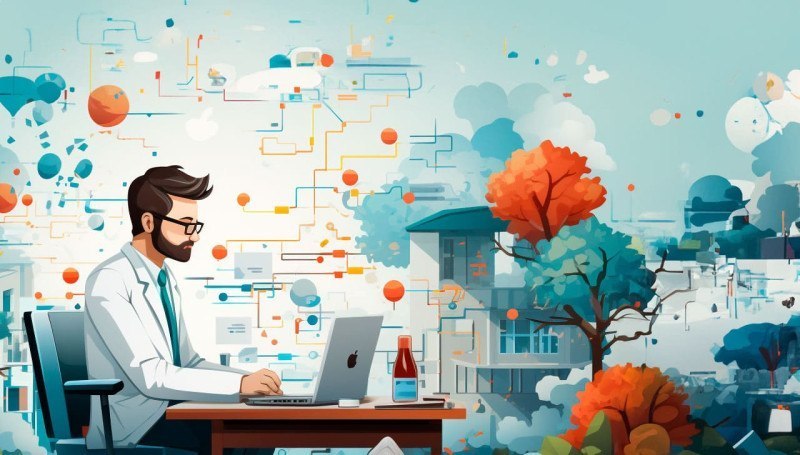
Virtual Nursing Assistants
A virtual nursing assistant will collect information about daily patient health and reduce manual work and lower operational costs. Virtual nursing assistants are being used for chatbots and taking care of patients. They can answer questions about basic things that can streamline the process to help ease the shortage for nurses going on in the United States (1.1 million shortage as of 2022). With many patients, nurses may struggle to give the time that each patient deserves, and this is what helps.
Many times, they use virtual nursing assistants for scheduling doctor’s appointments and monitoring the health status of patients. Most experts believe that virtual nursing assistants will bring $20 billion to the healthcare industry by 2026.
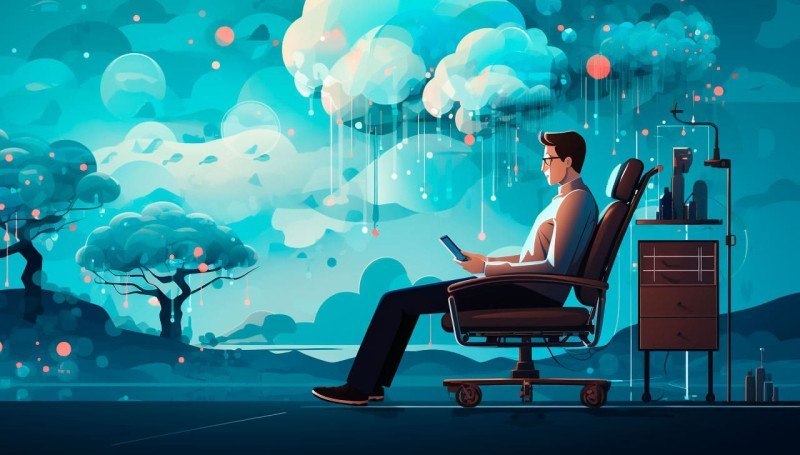
Workflow Automation
The average doctor sees upwards of 20 patients every day. Healthcare providers need to deal with the data entry of this, and due to the shortage of workers, it can reduce your overall productivity. For that reason, many healthcare providers have begun to turn to email AI solutions like AImReply to save time and money. In fact, an estimated 73% of all IT leaders say that workflow automations helps healthcare employees to save anywhere from 10% to 50% on doing the tasks manually. Using workflow automation will allow you to reduce manual labor.
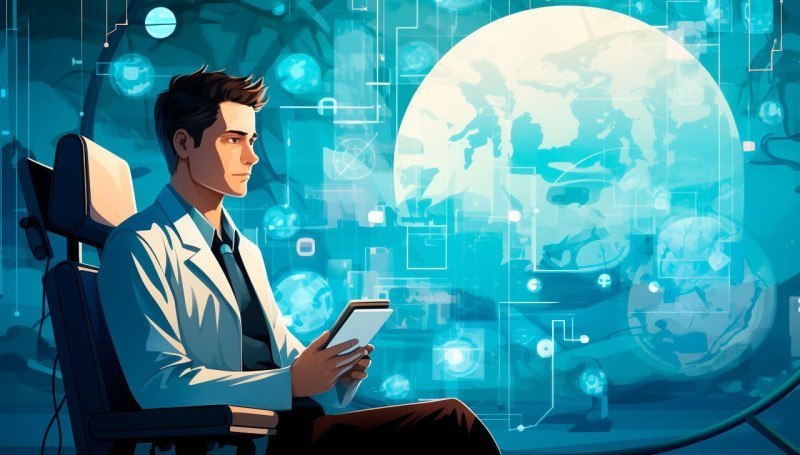
AI Assisted Surgeries
The artificial intelligence used in healthcare even impacts surgeries. Some may worry that AI usage in healthcare sounds scary, but in fact, this type of surgery enables data-driven decision-making that helps to improve outcomes. Because of its training on massive amounts of data from surgical videos, AI can anticipate the next 15 to 30 seconds of an operation. The AI uses in healthcare for surgery include planning how much time is left for the surgery and looking at the available hospital bed resources.
In addition, the AI can accurately inform the patient’s family when they might finish with the surgery. At the same time, AI reduces the need to have a nurse on call. For example, after the patient wakes up from the surgery, they can ask the AI chatbot if the symptom that they’re experiencing is normal.
AI chatbots have already been used in obstetrics, and 96% of all patients see it as a positive tool.
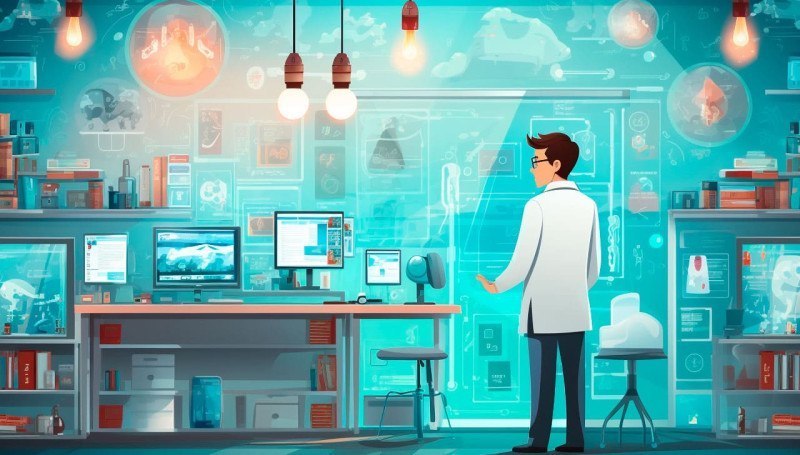
Reading Medical Images
AI used in healthcare for reading medical images has come a long way with the latest techniques going further than ever before. AI and machine learning can spot differences that even the human eye won’t pick up. An estimated 7.4 million misdiagnosis errors are reported every year, but that number may be much higher because they rarely get reported. AI eliminates some of the risk that you would receive a misdiagnosis. The use of AI in healthcare will look at the full picture because nothing gets overlooked with AI.
This technology has especially played a crucial role in cancer treatment. Doctors often use it today to monitor tumors and check for the spread of the cancer cells. At the same time, using artificial intelligence in healthcare will give them the ability to watch how the treatment is working. Figuring out how well a treatment is working will determine whether a doctor should continue giving that treatment. Especially when it comes to therapy for cancer, it can be tricky because what works for one person may not work for the next, and in many cases, they find that multimodal therapy works the best.
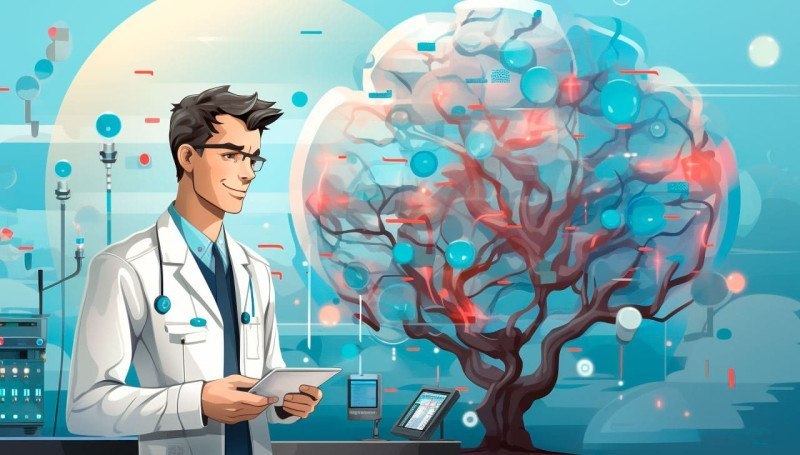
Decreasing the Cost of Medicine
Artificial intelligence usage in healthcare has a growing field in medicine where they use supercomputers to make predictions from databases of molecular structures that would prove effective and those that wouldn’t prove effective in treatment. The AI technology analyzes hints from millions of experiments and thousands of protein structures. This would be impossible for a single person to use without the help of AI.
To give an example of where professionals used it, in 2015 when Ebola had a serious outbreak in the West African region, they used an AI software known as Atomwise that they partnered with IBM and the University of Toronto to screen the compounds capable of binding to the glycoprotein that would help to resist the Ebola virus. This AI use in healthcare was used to test compounds and select one that acted on other viruses with a similar mechanism. All this analysis took place in a single day. To put that into perspective, they would’ve needed months or years to reach the same conclusion manually.
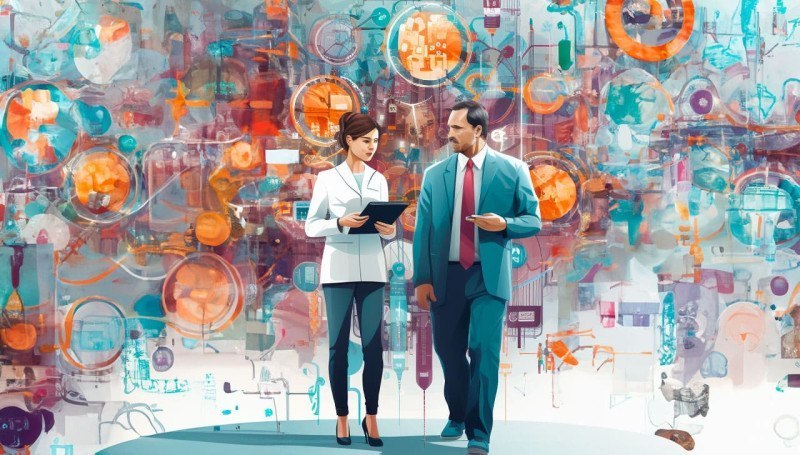
Lifesaving Assistance to Emergency Medical Staff
Taking the example of someone who suffered a heart attack, the time between the 911 call and arrival with the ambulance is the difference between life and death. For an increased chance of survival, emergency medical staff must be able to recognize cardiac arrest symptoms and quickly.
The AI can analyze the data from verbal and nonverbal cues. It analyzes a variety of things like the medical history of the patient and the background noise to detect heart attacks. The AI listens to many calls and analyzes them as a way of detecting the most essential facts. Emergency dispatchers can detect a heart attack around 73% of the time, but AI can help to make them even more accurate. During a life or death scenario, the quick response will save lives.
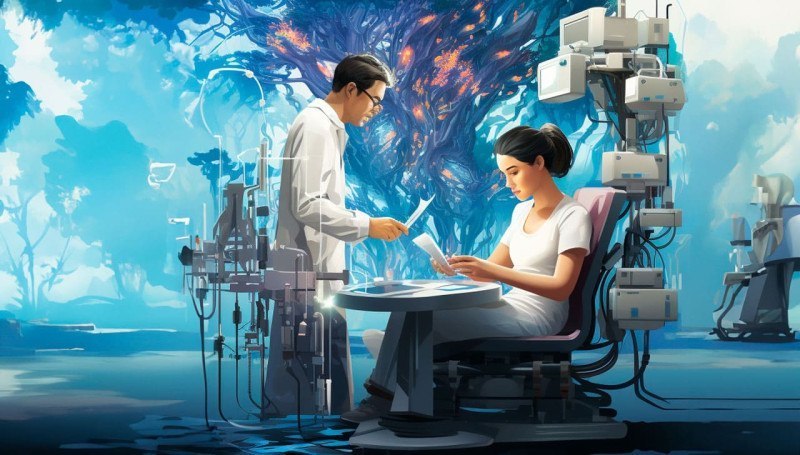
Detection of Acute Kidney Injury
If you were to ask, “How is artificial intelligence used in healthcare?” One of the ways that doctors have begun to use it is through detecting acute kidney injury. In many cases, they struggle to detect it because the other kidney will do the work, and it can appear as if at normal function. Early detection and treatment can reduce the lifelong experience of kidney dialysis and the high costs of treatment.
Using AI in healthcare for detecting acute kidney injury, the tool detected up to 90% of the acute kidney injury cases up to 48 hours sooner than with the other methods available. Using the AI can improve the quality of life for those with this injury and determine the treatments available.

AI Can Analyze Unstructured Data
How can AI be used in healthcare? The uses of AI in healthcare are many and one of the ways that you can use it is by having it analyze unstructured data. The healthcare industry has massive amounts of data that can be a struggle to analyze, but with the use of AI, you can quickly scan the data to receive prompt and accurate answers.
Many times, patient records and health data get stored as unstructured data. This can make it difficult for a human to access it, much less understand it. AI makes a difference in this realm in healthcare because it helps to store, collect, and standardize the medical data. The format doesn’t matter much.
All of this helps to support doctors while eliminating the repetitive administrative tasks that can harm your productivity. Doing this will eliminate and simplify much of the need to search for patient records, and doctors can create a fast, accurate, and customized treatment plan that will suit the patient and their needs.
Final Thoughts
Hopefully, this answers the question, “How is AI being used in healthcare?” For those seeking to automate their workflow in emails, you might consider AImReply. This software will save employees thousands of hours on emails every year, and it will make your healthcare clinic more efficient. In a hospital environment, you can also take it on the go with you to respond to emails fast right from your phone. Try AI email generator to see how well it composes emails for you.

October 04, 2023
- 8 min
- 102
Although AI is finding its way into many different industries across the globe, it’s rapidly expanding in the field of healthcare and medicine. AI in healthcare is an interesting topic as it can lead to life-changing developments in the way we manage our health.
February 26, 2024
- 7 min
- 103
Smart small business owners may be paying attention to the new developments in AI and wondering how they can get bigger advantages for themselves. Many business owners have started to use AI as a way to gain advantages over their competition. Already..
March 15, 2024
- 9 min
- 90
In the world of business, you have to be able to sell yourself. This is where it can be helpful to know how to write an introductory email for business purposes. As with any form of professional communication via email, there’s always a bit of tact when it comes to the writing.






